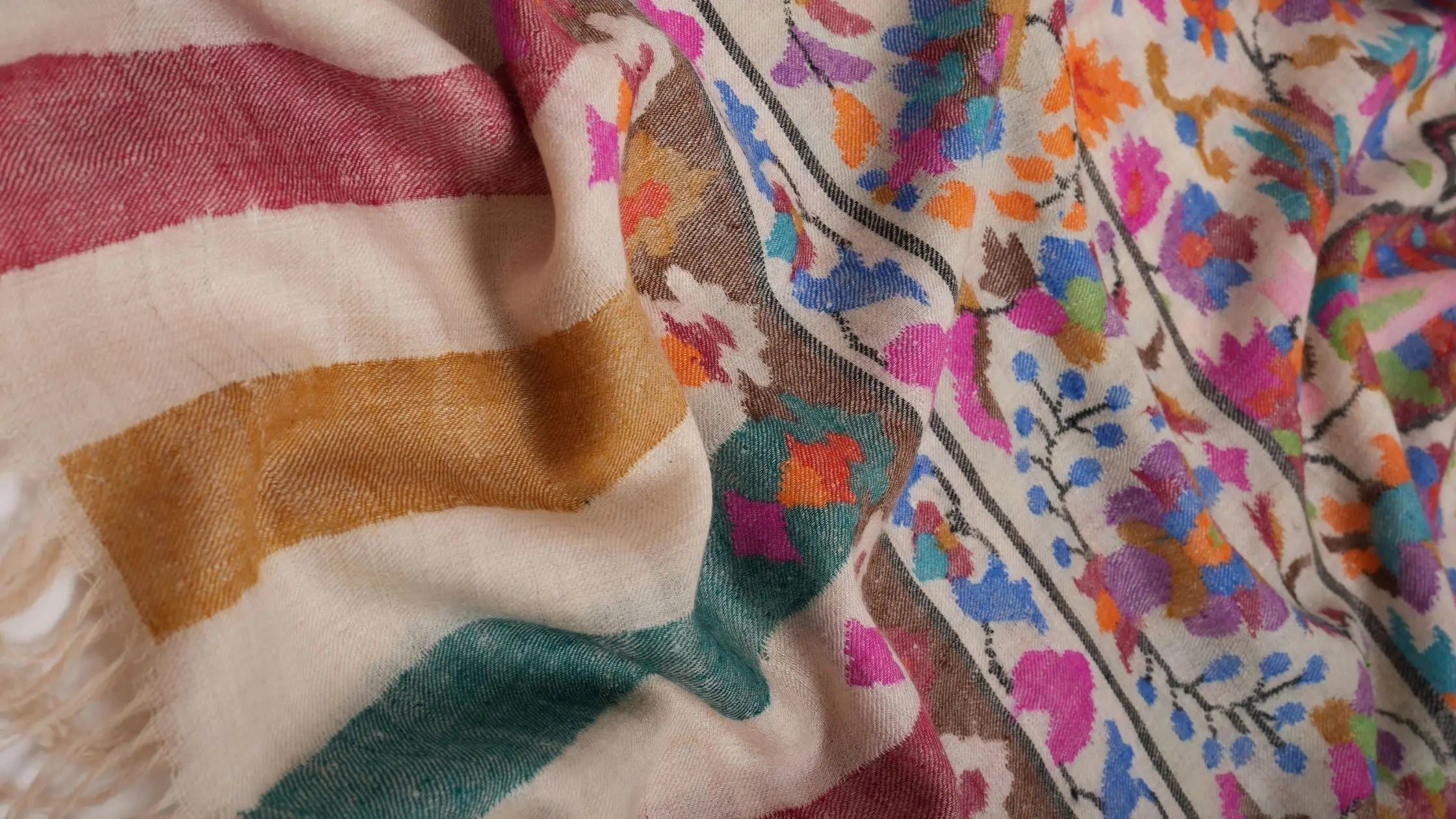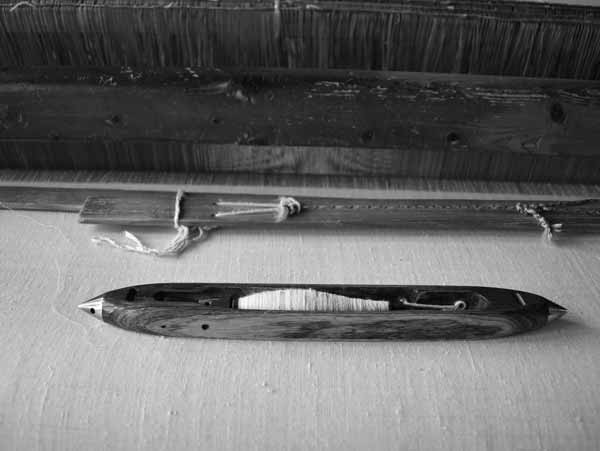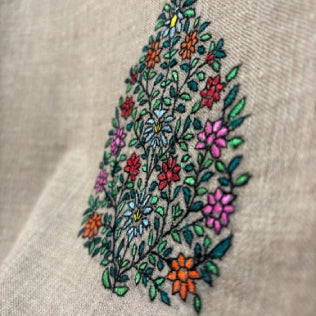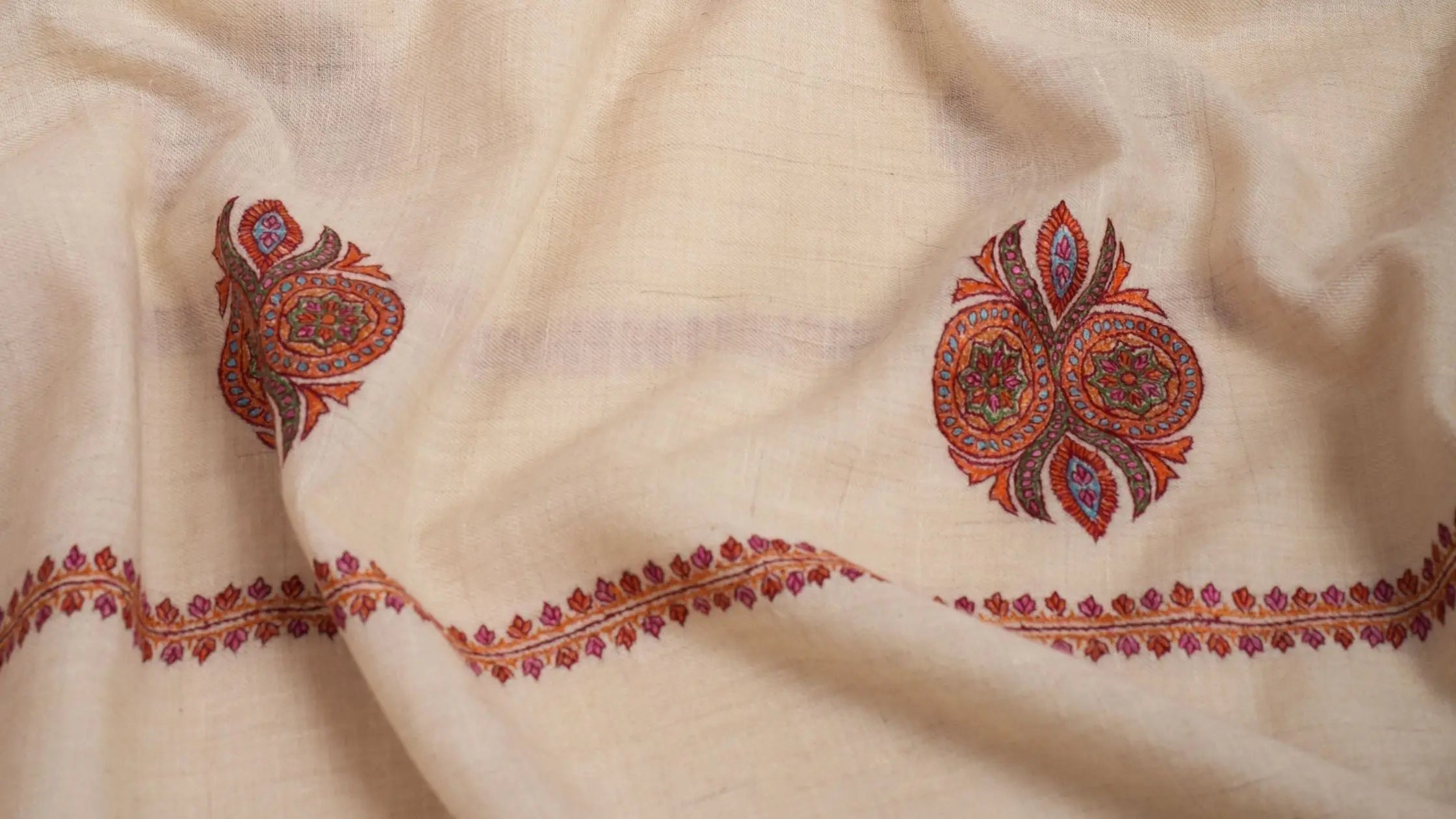
7 Mistakes to Avoid When Buying a Kani Pashmina Shawl Online
A handmade kani stole or shawl isn’t just a winter accessory—it’s part of Kashmir’s deep tradition and art. These woven treasures, often made with pashmina, can last for years if chosen well. But when shopping online, especially for something as detailed and delicate as a kani pashmina stole, it’s easy to get confused or misled.
To help you shop smart, here are seven common mistakes people make while buying a kani pashmina shawl online—and how you can avoid them.
1. Not Knowing What a Kani Shawl Really Is
Many people ask: what is kani? The word "kani" refers to the small wooden sticks or bobbins used in the weaving process. A kani shawl is woven thread by thread using these sticks, following a pattern from a written code, which takes months to complete.
If you don’t know what makes it special, it’s easy to mistake a printed or machine-made shawl for a real kani.
-
Kani shawls are not embroidered—they are woven, which means the pattern is built into the fabric.
-
Each thread is placed by hand, following a coded design called a 'Talim'.
-
This technique is unique to parts of Kashmir.
-
Printed or jacquard shawls may look similar but aren’t real kani work.
2. Trusting Only Photos Without Checking Close-Ups
Online sellers often use beautiful images to display their products, but some photos can be misleading. They may show a kani pattern, but that doesn’t confirm the shawl is handwoven.
-
Zoom in on product photos, especially the backside of the shawl.
-
The reverse side of a real kani will show the same pattern, though having locking knots.
-
Ask for close-up shots or videos to see the texture and weave clearly.
-
Be cautious if the pattern looks flat or overly perfect—it could be printed.
3. Ignoring the Seller’s Background and Reviews
A kani pashmina isn’t something you buy every day. You’re investing in a handmade piece of art, so it’s important to buy from a trusted source.
-
Look for sellers who clearly mention their source or workshop in Kashmir.
-
Read customer reviews carefully, especially those with photos.
-
Check if they offer clear details about the material—pure pashmina, blend, or wool.
-
Be wary of sellers offering big discounts with little information.
4. Confusing Kani Shawls with Sozni or Embroidered Ones
A lot of people mix up kani shawls with embroidered shawls like Sozni or Aari work. Though both are traditional, they are very different in how they’re made.
-
Kani shawls are woven; Sozni shawls are hand-embroidered.
-
Kani weaving takes more time and skill, especially with pashmina threads.
-
The front and back of a kani shawl show the same pattern, unlike embroidery.
-
A real kashmiri kani shawl can take months to finish, depending on the design.
5. Not Checking the Type of Pashmina Used
A lot of kani shawls are woven using pashmina, but not all are made from pure pashmina. Some are blends with wool or other fibres. That’s not always bad, but you should know what you’re paying for.
-
Pure pashmina is warmer, softer, and lighter.
-
Mixed fabrics are heavier and usually cheaper.
-
If the product is called pashmina kani shawl, the seller should clearly state if it’s 100% pashmina.
-
Ask for weight and thread count if you’re unsure.
6. Overlooking the Origin – Not All Kani Shawls Come from Kashmir
The true art of kani weaving belongs to Kashmir. Some machine-woven or imitation shawls may be made elsewhere and sold as genuine kani shawls of Kashmir.
-
Always check if the product is tagged as "Made in Kashmir."
-
Ask the seller about the artisan or weaving unit.
-
Ask for Certificate Of Authenticity.
-
Handmade pieces often come with a small tag or certificate showing where they were made.
7. Expecting Low Prices for Real Handmade Kani Stoles
A handmade kani stole takes weeks, sometimes months, to weave. If the price is too low, it’s most likely not real. Don’t fall for deals that sound too good to be true.
-
Real kani shawls cost more because of the time and skill involved.
-
Pashmina yarn itself is expensive; weaving adds more value.
-
Handmade items have slight variations or minor imperfections—that’s part of their charm.
-
If something is priced very cheap, it’s likely printed, machine-made, or made from synthetic materials.
Final Thoughts
Buying a kani pashmina stole online can be a lovely experience if you know what to look for. When you understand what makes a shawl truly kani—handwoven, pashmina-based, and made in Kashmir—you’re less likely to make a mistake. The effort and care put into these shawls deserve the same attention from buyers.
If you’re looking for real, time-honoured pieces with traditional weaving done by local artisans, Shahkaar is one place many trust for quality and heritage.





Leave a comment
This site is protected by hCaptcha and the hCaptcha Privacy Policy and Terms of Service apply.